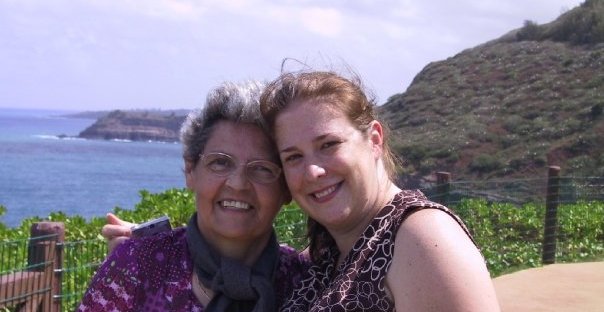I’m a doctor of medicine in the pharmaceutical industry. I created an LLC to take on contract jobs. I want to control my hours and travel for leisure after years of working in a variety of full-time pharmaceutical jobs. Being an independent contractor will allow me to be at home for my kids when I need to be there, yet still use my medical training to earn an income.
Who We Are
Cathy Smith
I have been in presentation graphics since 1982, working sales, training and support for Autographix, a turnkey slide system. When my daughter was born in 1990, I decided to strike out as a freelancer with all the companies that I helped sell the systems to. In 1993, when turnkey went the way of the dinosaur, I was introduced to PowerPoint. It has been paying the rent for me as an independent contractor ever since.
Clients from across the country and around the world come to me by word of mouth. I create, reformat and polish PowerPoint decks for them from the comfort of my home office. I have worked with C-suite executives in all kinds of industries: pharmaceutical, prestige cosmetics, medical education, insurance, fashion, telecom, food and finance.
Why I want to remain an independent contractor: Working in the late ’70s and early ’80s as a full-time employee, with all of the commutes, bosses, co-workers, evaluations and corporate culture, made me crazy. I was lucky to find a way out. Autonomy is everything! I love what I do, and I am really good at it.
And, at this point, age discrimination would most certainly get in the way of me returning to a full-time job. No one would pay me what I make as an independent contractor, if they would hire me at all, given that I am well past traditional retirement age.
Elizabeth Uss Barry
My typical workday begins at 8:30 a.m., as soon as my 3-year-old son with special needs leaves for preschool on the school bus. I work on various projects for my clients: planning social media calendars, writing blogs posts and editing video to share. Sometimes, I go to their offices for planning meetings or to go over what is working and what isn’t, in order to change the strategy, or to take photos and video “behind the scenes.” My workday concludes when my son steps off the school bus at 3:30 p.m. I also work on weekends when my husband is home to take care of our son.
Why I want to remain an independent contractor: I’ve always been a freelancer. I was a freelance television producer for 20 years prior to my current consulting role, and now, because I need to be home with my son and take him to therapy appointments after school, remaining a freelancer is the only way that I can still use my skills and help pay the bills. I could not work as an employee because I cannot keep 9-to-5 hours, plus commuting hours.
Mary Barna
I’m a change management and communications consultant, which means I help clients all across the United States solve specific challenges related to changes they are implementing in their organizations. I work as an independent contractor myself, and I hire other independent contractors to provide specialized services such as graphic design, proofreading, website development and video production.
My choice to do this work as an independent contractor was careful and intentional. Previously, I was a partner in a large consulting company for many years. I worked long hours. When my mother became terminally ill, I thought a lot about how I wanted to spend my time, and I realized that I wanted to be able to choose my own clients, projects and hours. It took me 10 years to build the consulting business that I have now, and I love the work that I do, as well as the flexibility and control that I have over my own life.
I will not go back to being a full-time employee. I chose years ago to pursue a different career path.
Laura Seidelmann
I am a sign language interpreter. I mainly work for a school to help a fourth-grader, but during the summers when school is out, I work freelance on various interpreting jobs. All summer long, I choose the jobs that best match my schedule with my children, as well as their activities.
Why I want to remain an independent contractor: I love everything about freelancing: making my own schedule, being my own boss, the flexibility. I never have to ask an employer if I can take a day off to go to my child’s school. I just don’t take a job that day. As a freelancer, I am in control.
I’m worried not only about how anti-independent contractor regulations would affect my family financially, but I’m also worried about how it would affect my industry. The deaf community will be hurt. There are already so many jobs that go without interpreters that deaf people need, and this legislation would force even more deaf people to live without interpreters.
Rachel Kramer Bussel
I work two days a week as a copywriter at the offices of a retail company, and the rest of the time I’m a freelance writer for various national and regional publications, largely focusing on sexuality, dating, and culture, as well as personal essays. I also edit 2-3 short story anthologies per year, teach erotica writing classes and consult about writing with private clients. I generally work anywhere from 30-50 hours per week, and my S-Corp business has grossed six figures for the last three years. I was laid off from my full-time magazine editor job in 2011 and have worked for myself ever since then. My current business brings in over twice the rate of my previous full-time salary.
The two biggest reasons freelance work is important to me are that full-time media jobs are few and far between, given the increasingly volatile nature of the news business, and that I’m able to bring in a far greater income than I would otherwise. Additionally, I’ve chosen not to drive for the last 15 years, and working from home or within walking distance of my home enables me to avoid a long and costly commute while maximizing my time. Instead of commuting during rush hour, I’m working. I’m more productive as a freelance worker because I’m not beholden to a strict 9 to 5 schedule, and that flexibility has enabled me to write for publications such as The New York Times, The Washington Post, Marie Claire, O, The Oprah Magazine and others during the course of my time as a full-time freelancer.
I’ve spent the past 20 years building up my name and professional profile so that I could contribute to top-tier publications and become known in my field.
Tiana Rosen
I am an instructional designer, responsible for designing, building, and often writing course content, from online self-study courses, to instructor-led virtual classes and live instruction delivered in brick-and-mortar classrooms.
Typical tasks of the day vary greatly depending on the point in time in the course production cycle. On any given day, I may be interviewing subject matter experts (typically also freelancers) to identify crucial content for inclusion in the course; designing course templates, layouts, and games for online interaction and media (regardless of subject); writing actual content or assessments; and various other ad-hoc tasks, such as drafting specs documentation, reviewing existing materials for potential updates or course/media refreshes, editing, and basic image creation.
I invoice monthly and am in complete control of my hours, working often from just the guideline of a project delivery deadline. It is up to me to work backwards from that date, create a delivery proposal and course specs, and manage and edit my own schedule as time progresses. That may mean I have a week where I only work a couple hours a day, or I might be working 10-14 hour days in the final crunch time. In either scenario, it is because of my own choosing and the ability to juggle work and life tasks as needed.
This choice is a crucial and deliberate one for me. For the first 16 years of my career, I was a full-time salaried employee working on-site. While I loved the work, the cause (K-12 education) and my team, it was a true pressure cooker environment where I went from delivering just a couple courses a year to well over 10. There was no overtime compensation for extra hours worked, the turnover of employees was high, morale was low, there was reluctance by management to divide up my upper-middle-management role (even upon my request), and the number of courses to be published increased every year. Instead of being given a raise in recognition for my work, I often was promoted instead. Normally that would be a good thing because it did come with a slight raise, but this also meant taking on even more responsibility and stress. Add into the mix an aging mother who lived with me due to physical disabilities and was starting to show signs of the onset of dementia made me realize I couldn’t keep the status quo going much longer.
I waited until my latest cycle of courses was delivered and I tendered my resignation. I did not have another job prospect lined up. I won’t lie. The transition was a bit rough, but I soon found enough freelance work to pay for my bills and get a taste of a better life.
I found that I could perform a mere 20 hours of freelance work a week and make the equivalent of what I had before. That’s 20 hours a week compared to the 60 I had worked but wasn’t being compensated overtime for. No migraines, no cracked molars from grinding my teeth, no guilt on leaving my mother unattended for too long. I now work an average of about 20-30 hours a week and have an income of well over $100K.
This move has changed everything. I can take my mom to specialists and doctor appointments. I can take time in the middle of a traditional work day to sit and talk with her and cook her favorite meal. I was able to provide the best end-of-life care I could for a high-needs senior dog that lost his ability to walk in his final month. When he passed, my mother, sister, and I we were able to visit the animal shelter a month later and adopt a gray-muzzled dog who was deemed “high-needs” enough to have his adoption fee waived due to stress at being at the animal shelter for 2 months. I knew what that type of stress felt like and felt a kinship to him. It’s only one month later and he has since settled into such a sweet and loving soul here with us at home, and he’s enjoying his new role as my full-time sidekick.
I am able to contribute more of both my money and time to charitable causes. I am able to carve out time for the holidays and take my family on vacation rental getaways, just so we can leave my apartment at times and enjoy a home with a bigger kitchen, view, or a pool. The rationale: to carve out protected time to sit back, slow down, and enjoy the time leading up to the holidays together. Wrap presents, prepare old family recipes, bake cookies, and walk the dog down the road searching for squirrels. The irony of this all is, if I didn’t make that change, I wouldn’t be able to physically care for my mother (my office was in Philly), nor would I have been able to afford her care at a memory care facility. Now that is not so much an issue, but I am blessed to be able to have the life flexibility needed to keep her as long by my side here at our home as possible. She deserves that. Don’t we all?
Anne Ferara
For 12 years, I’ve provided project-based consulting services (mostly related to sales), or instructional design or training facilitation to clients through training companies. I manage all aspects of the project from making a recommendation to preparing the deliverables.
The only direction I get is a budget and usually a time frame for the completion of the project. My clients have internal staff that will finalize the final project output. Right now I have two primary clients and then do projects for their clients. I’ve had up to 4 or 5 clients at a time over the years. I set my own schedule, I have a Master Services agreement and pay a significant amount of taxes, both state and federal. My clients provide no equipment or resources.
I chose self-employment for autonomy—for the ability to set my own schedule, work in my own space in the manner I choose. While it can be stressful and hard at times, I know I’m getting paid for all the hours I work. As an exempt employee many, many times I worked significantly more than 40 hours a week. Now I at least get compensated for the efforts I put in.
What will happen to me if S4204/A5936 becomes law: I think it may mean the closing of 12 years of business and relocating out of the state where my whole family lives. I have already started the search because I have little faith the people of NJ will be heard.
What I want lawmakers to know: I would like to think that your intentions are good but you have no sense of the people who will be impacted by this poorly written bill. If I wanted to be an employee I would look for a job and not incur the significant expenses in insurance, taxes, etc., that I experience as an independent business. There has to be a better way to track and ensure that everyone is paying their fair share of taxes and an employer that is truly abusing the assignment of status is addressed. I think your gap is in enforcement, NOT in language. Please don’t ruin the businesses that thousands have built in this state.
Christina Crea
I love the flexibility of teaching English as a second language to students over the Internet. It allows me to do what I love and be present for my family.
How do I work? I log in at 4 a.m. and teach until it’s time to get my kids ready for school. I can teach one class a week or 50 classes a week, and I adjust my schedule to my family’s needs. If my kids are sick, I don’t have to stress about the consequences of taking time off care for them. If there are activities at my kids’ school, I am available to volunteer.
I can do all these things and work because I choose to be an independent contractor.
My husband’s salary pays for our mortgage, and my income pays for just about everything else. I don’t know what we’ll do if I’m unable to keep working as an independent contractor. We may have to consider leaving the state.
Liz Tarpy
I do a variety of things in food media, including being a recipe developer, recipe tester, recipe editor and culinary researcher. The variety is one of the reasons I enjoy freelancing. One day, I could be developing recipes for a food brand in my home kitchen, and the next day, I could be assisting a food stylist for a video being filmed in a New York City studio or on location in New York or New Jersey. I also edit recipes for food media outlets, test recipes for cookbook authors and food TV shows, and work in various capacities for food TV shows.
The way I choose to work as an independent contractor is perfect for me. I am “allergic” to corporate settings. I prefer being independent and having freedom.
Working as a freelancer also gives me the flexibility I need to visit my mother, who is in an assisted living facility with dementia. Oftentimes, I take my work with me to do between visits with her, something that most full-time employers would not allow.










